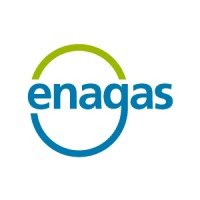ATOME Energy orders electrolyser from CPH2; Haydale and Viritech work on hydrogen storage
The MFE is scalable, easily transported and assembled in the required scale and specification for the end customer.

CPH2 (a UK-based green hydrogen technology company) has entered into a purchase order with ATOME Energy plc (ATOME) to supply a 1MW MFE220 electrolyser unit.
The Membrane-Free Electrolyser (MFE) is to be delivered at the end of this year and deployed in ATOME’s Paraguay mobility project.
Both partners have also signed letters of intent confirming the parties’ mutual intentions to collaborate in respect of potential future orders of electrolyser units for ATOME’s international hydrogen and ammonia projects and to investigate and discuss a potential joint venture for the future production of electrolysers in the country to serve the Latin American market using CPH2’s technology and know-how.
CPH2’s MFE220 product runs with 1 MW of input power and can produce 450kg/day of high purity green hydrogen.
The MFE220 is designed to be simple to build, operate, and maintain. It is in the final stages of concept design and layout, will operate on 2MW of input power and will be capable of producing 900kg/day of green hydrogen.
The MFE electrolyser unit is designed to be ‘plug and play’ with any end-user required only to provide the relevant hard standing pad, electricity and water supply.
This first unit for ATOME’s Mobility Division will be based within the region of Asuncion, the capital of Paraguay, with the commencement of production planned before the end of Q1 2023, which is anticipated to be the first commercial production of hydrogen for transport in Paraguay.
Haydale and Viritech to work on nanomaterials for hydrogen storage
Haydale announced the next phase with the cleantech engineering company to develop nano-enhanced epoxy resins for hydrogen storage vessels.
The £97,750 Storage of Hydrogen and Nanomaterial Enhancement (SHYNE) project will run for seven months, starting in March.
Haydale will focus on designing and developing new materials and resins based on functionalised graphene using its patented HDPlas technology in Type V hydrogen storage tanks. The resin can act as a permeation barrier for the storage vessel, but the functionalised graphene also potentially offers greatly enhanced mechanical properties, including impact and interlaminar sheer, to improve the vessel’s overall performance. The Type V design aims to deliver further weight savings for applications in vehicles.
